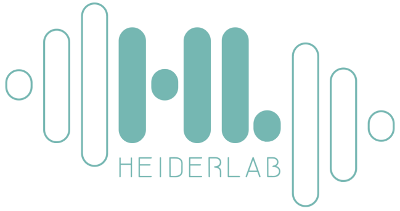CORona Drug InTEractions database
Screening of Chloroquine, Hydroxychloroquine and its derivatives for their binding affinity to multiple SARS-CoV-2 protein drug targets
Mallikarjuna Nimgampalle, Vasudharani Devanathan, Ambrish Saxena
Abstract
Recently Chloroquine and its derivative Hydroxychloroquine have garnered enormous interest amongst the clinicians and health authorities’ world over as a potential treatment to contain COVID-19 pandemic. The present research aims at investigating the therapeutic potential of Chloroquine and its potent derivative Hydroxychloroquine against SARS-CoV-2 viral proteins. At the same time screening was performed for some chemically synthesized derivatives of Chloroquine and compared their binding efficacy with chemically synthesized Chloroquine derivatives through in silico approaches. For the purpose of the study, some essential viral proteins and enzymes were selected that are implicated in SARS-CoV-2 replication and multiplication as putative drug targets. Chloroquine, Hydroxychloroquine, and some of their chemically synthesized derivatives, taken from earlier published studies were selected as drug molecules. We have conducted molecular docking and related studies between Chloroquine and its derivatives and SARS-CoV-2 viral proteins, and the findings show that both Chloroquine and Hydroxychloroquine can bind to specific structural and non-structural proteins implicated in the pathogenesis of SARS-CoV-2 infection with different efficiencies. Our current study also shows that some of the chemically synthesized Chloroquine derivatives can also potentially inhibit various SARS-CoV-2 viral proteins by binding to them and concomitantly effectively disrupting the active site of these proteins. These findings bring into light another possible mechanism of action of Chloroquine and Hydroxychloroquine and also pave the way for further drug repurposing and remodeling.
Source: PubMed
Related molecules
| Name | Synonyms | Genes |
|---|---|---|
| Chloroquine | ||
| Spike glycoprotein | Spike protein, S glycoprotein, S-Protein, S1, S2, S3, Peplomer protein, E2 | S, ORF2 |
| Hydroxychloroquine | HCQ, Oxichlorochine, Oxichloroquine |
Related interactions
| Target | Target affiliation | Drug | Type | Result |
|---|---|---|---|---|
| Target | Target affiliation | Drug | Type | Result |
| Name | Synonyms | Genes | Origin |
|---|---|---|---|
| Name | Synonyms | Genes | Origin |
| Name | Synonyms | PubChem | DrugBank | RCSB PDB | ATC |
|---|---|---|---|---|---|
| Name | Synonyms | PubChem | DrugBank | RCSB PDB | ATC |
| Title | Authors | DOI | Source | Article type | Date |
|---|---|---|---|---|---|
| Title | Authors | DOI | Source | Article type | Date |
| Title | Status | Phases | Start Date | Prim. Comp. Date | Comp. Date | First Post. Date |
|---|---|---|---|---|---|---|
| Title | Status | Phases | Start Date | Prim. Comp. Date | Comp. Date | First Post. Date |
CORDITE (CORona Drug InTEractions database) collects and aggregates data from PubMed, MedRxiv, BioRxiv, ChemRxiv and PMC for SARS-CoV-2. Its main focus is set on drug interactions either addressing viral proteins or human proteins that could be used to treat COVID. It collects and provides up-to-date information on computational predictions, in vitro, as well as in vivo study data.
The information provided is for research only and we cannot guarantee the correctness of the data.
Please contact dominik.heider@uni-muenster.de for further information.
Programmable access
There is an open API for access programmatically to the database. The API will print a JSON output:
- Interactions
https://cordite-api.uni-muenster.de/api.php?action=list&table=interaction
- Targets
https://cordite-api.uni-muenster.de/api.php?action=list&table=target
- Drugs
https://cordite-api.uni-muenster.de/api.php?action=list&table=drug
- Publications
https://cordite-api.uni-muenster.de/api.php?action=list&table=publication
- Clinical trials
https://cordite-api.uni-muenster.de/api.php?action=list&table=clinical_trial

